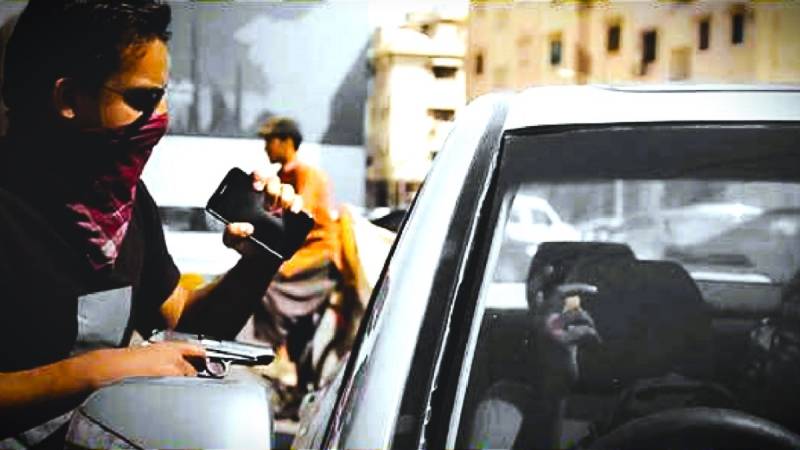
As I trudged out of the library after a long, tiring day, my phone buzzed with a slew of messages. Dusk had settled into the dark of night as I walked down Turner Road, just outside the building of the Lahore High Court; I started responding to the messages. Engrossed in recording a reply to a very crucial message, I failed to notice a man approaching me from behind on a 125cc motorbike. In mere seconds, he had snatched the smartphone from my hands with practised efficiency and sped away, leaving me momentarily stunned and bewildered.
As I managed to regain my composure, my mind began racing. Was my phone unlocked when he grabbed it? Will the snatcher be able to access my contacts? The reality of the theft, closely followed by anxiety, hit me like a ton of bricks. I ultimately managed to shout for help, even though I had just helplessly watched the thief vanish into the distance. A passerby, seeing my distress, called the police. Even though a police post was just 10 minutes away, it took them an hour to arrive at the spot. During that hour, I felt an overwhelming sense of panic and helplessness. My phone was not just a device that held my personal contacts and some other data, but crucial documents and sensitive information. How would I survive without it?
Realizing that chasing after the thief was futile, I rushed to my hostel to secure my data and change the passwords to critical apps. Every minute since the thief stole my phone, all I could think about was if they would exploit my digital life. Here, I found myself tangled in the bureaucratic web of reporting my phone as stolen, a process so tedious that it discourages many from even bothering to do so.
Street crime, especially phone snatching, has become rampant in Lahore. After 8pm, certain areas of the city have become notorious for such activities, transforming them into "hotspots for criminal activity" or "lawless zones." Criminals target smartphones because they are abundantly available and far more lucrative than other valuable items. In cities across Pakistan, people usually walk around with their phones in hand, often distracted by typing, listening to music, recording, or navigating. Criminals exploit this distraction, stalking their targets like predators. Men may attempt to chase the thief, but women often only scream for help.
More than just the intrinsic value of the device that they steal, thieves covet the data contained. If the phone they have snatched is unlocked, it provides them with a gateway to e-transactions, bank accounts, and even bitcoins, apart from other sensitive data of the device owner.
Phone snatching also inflicts psychological trauma on victims, causing anxiety, stress, and a sense of vulnerability
This criminal activity, once peaking in Karachi around 2010, has now spread nationwide. Phone snatching is easier than dealing drugs, with fewer chances of arrest and minimal punishment. Police, often preoccupied with more serious criminal activities or even political duties such as guarding politicians or large protests, ignore these crimes or treat them lightly.
The impact of phone snatching extends beyond just the material loss of the device or data. It also inflicts psychological trauma on victims, causing anxiety, stress, and a sense of vulnerability.
Given its impact on the public at large, this crime needs serious attention, perhaps even more so than other financially motivated crimes. The police are well acquainted with the middlemen who facilitate this trade, changing IMEI numbers and reselling stolen phones. These middlemen profit immensely, not just from selling the phones but also from selling personal data through dark web channels. Despite knowing this, the authorities often turn a blind eye to it, sometimes even colluding with criminals for economic gain. Addressing this issue requires more than just increasing the number of police officers on the street corner. It demands a systematic review of how phone snatching is handled and structural changes in the policing system.
Currently, under Section 356, phone snatching carries a punishment of up to two
years or a fine or both. However, it is a non-bailable offence in theory, but in practice, offenders easily secure bail and continue their activities with increased savvy.
Legislators must enforce stricter penalties, including a minimum of seven years' imprisonment and higher fines. Repeat offenders should face even harsher consequences. Only then can we hope to curb this rampant crime and restore a sense of security to the streets of Lahore.

